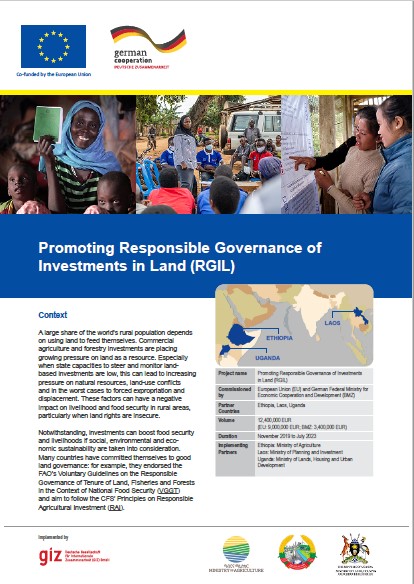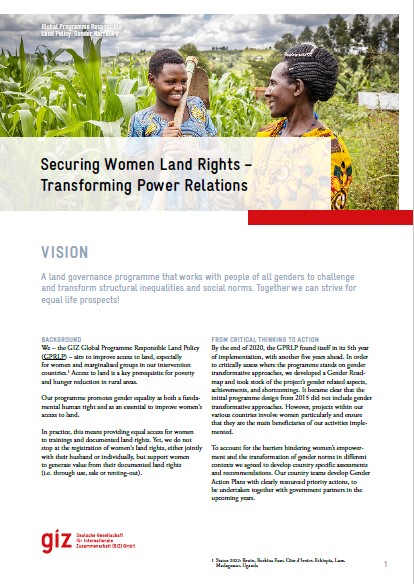Location
As a service provider in the field of international cooperation for sustainable development and international education work, we are dedicated to shaping a future worth living around the world. We have over 50 years of experience in a wide variety of areas, including economic development and employment promotion, energy and the environment, and peace and security. The diverse expertise of our federal enterprise is in demand around the globe – from the German Government, European Union institutions, the United Nations, the private sector, and governments of other countries. We work with businesses, civil society actors and research institutions, fostering successful interaction between development policy and other policy fields and areas of activity. Our main commissioning party is the German Federal Ministry for Economic Cooperation and Development (BMZ). The commissioning parties and cooperation partners all place their trust in GIZ, and we work with them to generate ideas for political, social and economic change, to develop these into concrete plans and to implement them. Since we are a public-benefit federal enterprise, German and European values are central to our work. Together with our partners in national governments worldwide and cooperation partners from the worlds of business, research and civil society, we work flexibly to deliver effective solutions that offer people better prospects and sustainably improve their living conditions.
Members:
Resources
Displaying 61 - 65 of 340Women of the Land
The Support to Responsible Agricultural Investments (S2RAI) Project promotes internationally recognized principles and guidelines to ensure food and land tenure security for communities in the context of large-scale commercial land investment as well as strengthen the institutional frameworks and coordination structures at federal and regional levels in relations to responsible agricultural investment in Ethiopia.
Shades of Land
The Support to Responsible Agricultural Investments (S2RAI) Project promotes internationally recognized principles and guidelines to ensure food and land tenure security for communities in the context of large-scale commercial land investment as well as strengthen the institutional frameworks and coordination structures at federal and regional levels in relations to responsible agricultural investment in Ethiopia.
Promoting Responsible Governance of Investments in Land (RGIL)
The RGIL project is part of the Global Programme Responsible Land Policy (GPRLP) and is implemented in Ethiopia, Laos and Uganda. RGIL aims to ensure that investments in land are productive, contribute to sustainable land management and respect the rights and needs of local populations, in particular vulnerable groups and women. The project is funded by the European Union and the German Federal Ministry for Economic Cooperation and Development (BMZ).
Securing Women Land Rights - Transforming Power Relations
This brochure provides an overview of the Gender Narrative of the Global Programme Responsible Land Policy (GPRLP) implemented by the German Development Cooperation Gesellschaft für Internationale Zusammenarbeit (GIZ) GmbH. It lays out the programme's vision, motivation and approach to ensure equal life prospects for all genders.
For more information on the Global Programme: Global Programme Responsible Land Policy | Land Portal.
Bazuar në praktikat rregullative në Evropë
Land consolidation is a highly effective land management instrument that allows for the improvement of the structure of agricultural holdings and farms in a country, which increases their economic and social efficiency and brings benefits both to right holders as well as to society in general. Since land consolidation gives mobility to land ownership and other land rights, it may also facilitate the allocation of new areas with specific purposes other than agriculture, such as for public infrastructure or nature protection and restoration.





